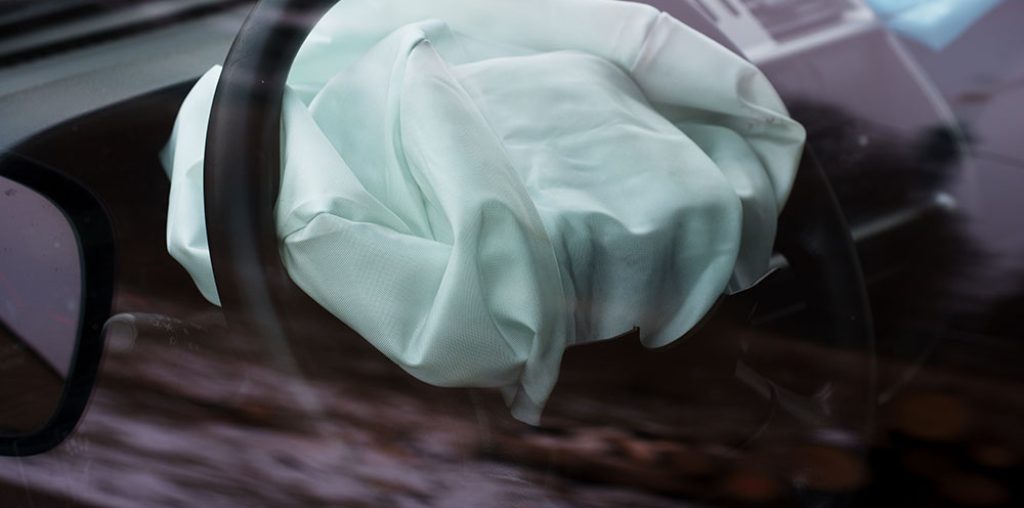Robert Mazow and Kevin McCullough of the Law Office of Mazow McCullough talk with John Maher about inherent diminished value (IDV). They explain how an accident can reduce the value of a vehicle, and they talk about how car accident victims may be able to claim these funds thanks to a new court ruling.
John Maher: Hi, I’m John Maher. I’m here today with Robert Mazow and Kevin McCullough of the law office of Mazow McCullough. And today we’re talking about inherent diminished value and car accident claims. Welcome Robert, Kevin.
Rob Mazow: Hi John.
Kevin McCullough: Hi John.
What Is Inherent Diminished Value?
 John: So Kevin, what is IDV or Inherent Diminished Value?
John: So Kevin, what is IDV or Inherent Diminished Value?
Kevin: IDV is the concept that a motor vehicle is worth less after a collision, even after repair. It recognizes the idea that in an open market, a consumer who has the choice between two identical vehicles, one having been in a prior collision and one being collision free, recognizes the fact that most consumers are going to choose the car that has not been in a collision. So, that inherent diminished value is reflected in the purchase price and in the market value for these vehicles.
How Did Insurance Companies Handle IDV in the Past?
John: And how was IDV handled by insurance companies in the past?
Kevin: In the past inherent diminished value was disputed and fought by insurance companies if a claim was presented. And insurance companies would typically say that it’s just not something that can be calculated or quantified. And they also argued that inherent diminished value damages were not covered under the standard Massachusetts insurance policy. So, they just weren’t paying those claims.
How Has Your Recent Case Changed How Insurance Companies Deal Wit Inherent Diminished Value?
John: And so Kevin, you were involved in a case this year that went all the way to the Supreme Court of Massachusetts. Can you tell me a little bit about that case and what changed due to this new ruling, that just came out in October of 2021?
Kevin: Yes. The case is McGilloway versus Safety Insurance Company, and it’s a case that we filed the lawsuit on behalf of Mr. McGilloway, seeking the inherent diminished value damages against Safety Insurance Company, a few years ago. And that fight worked its way up to the highest court here in Massachusetts, the Supreme Judicial Court. There were oral arguments heard by the court, back in May of this year, and the unanimous court, all seven judges, agreed with our argument in October of this year, indicating that inherent diminished value is an actual damage that can be recognized and calculated, and it’s also covered under the Massachusetts insurance policy.
What Role Do Online Vehicle Appraisal Sites Play in Determining Inherent Diminished Value?
John: Okay. Rob, what role do you think online services, like Carfax and Kelley Blue Book, played in this decision?
Rob: Well, I’m not sure it played in the decision that the SJC, the Supreme Judicial Court, rendered. When Kevin argued the case in front of the SJC, it seemed that most of them did understand this idea of inherent diminished value was a thing. Everybody understood that if you put two cars together, people are going to get the one that hasn’t been in an accident, over the one that has been in an accident.
Online material from sites like Carfax and Kelley Blue Book has evened the playing field for consumers, which has educated them when they go shopping for a car to know whether a car has, either in a private sale or a sale through a dealer, whether a car has been in a collision before, and how much damage it has sustained, even if it has been repaired.
So it essentially democratized the consumer. The consumers are now armed with as much information as the dealer, or the person selling has, and it’s given them a fair shot. And it allows them to make that argument when they’re negotiating a price.
What Kevin did, and he’s being modest. Kevin changed the landscape of how these cases are looked at by the insurance company. This was a big deal. And it was a remarkable victory, because he was able to absolutely change the law and change the way insurance companies look at these cases. So, now a person who has suffered a diminished value in their car, they’re not only entitled to get their car repaired, but they’re entitled to get more for the inherent diminished value, because of the work that Kevin did for this case.
So, while Carfax and that type of material has been around before now, a consumer can now use that information to try to get more money from an insurance company because of the work that Kevin did.
Kevin: Right. I think to further Rob’s point too, it’s not so much that the court looked to it, to help with its decision. But the fact that there is now this industry that’s been created, that researches and has a database of cars that have been in a car accident. And the motor vehicle industry itself looks to that database when they’re repairing cars, and when they’re purchasing cars, or trade-in, or selling cars.
The fact that that industry now exists, it helps support my argument in front of the SJC, in that everyone is looking at this information. It has a meaning, and it does impact the value of the vehicle at the time of sale, or at the time of trade-in. So, it was certainly a point that we could use to help show the court why they should agree with our argument, and agree that it is something that exists, and it can be calculated. And I think the focus shifted to the simple question, which was, is it covered under the policy?
How Have These Sites Given More Info to Consumers?
Rob: Right. Because prior to the existence of online services, again like Carfax or like Kelley Blue Book, a car owner would really only be able to put their car on the market, see what they could get for it, maybe lower the price if it wasn’t being sold, something like that. You couldn’t really look up and see whether or not a car had been in an accident. Now, you can see whether or not that car has been in an accident before, what type of accident it was, what got repaired and what the value of the car is before the accident, after the accident and make that comparison. And you weren’t able to do that before.
Kevin: Right. Ironically, at the time of the decision and prior to the decision here in Massachusetts, all of that information and data was being collected and used by a number of different groups, including the motor vehicle sale and resale industry and the motor vehicle insurance industry, and the one group that couldn’t use it was the consumer. They were getting hit on all sides. They weren’t getting paid for it, but yet they were taking the loss when they traded in or sold their vehicle.
Rob: Exactly. And now consumers, armed with this information, can go to the insurance company and say, see Carfax has this car with the same exact mileage, the same exact year, which has not been in an accident, which is $5,000 more than the one that has been in an accident. You owe me now the difference. So, they have that information and it’s really quite something.
Who Is Affected by the New Ruling on IDV?
John: And who does this new ruling apply to? Can anybody who’s been in an accident, who has suffered inherent diminished value on their vehicle, can they get that compensation, or does it only apply to certain cases?
Kevin: That is a great question, because there is a distinction as a result of the McGilloway versus Safety case. If you are the cause of the accident, or you’re the one that’s at fault, or was negligent, you cannot recover the inherent diminished value that your vehicle suffers after that collision.
Really what the case is all about, and the consumers that will benefit are those consumers who do nothing wrong. They’re sitting at a stop sign, or at a red light, and their car gets hit, or their car gets damaged due to someone else’s fault. Those individuals who suffer damage to their car, because of someone else, now have the ability to pursue and recover those damages from the at-fault driver’s insurance company.
What Is a No-Fault State for Car Accidents?
John: Okay. Now, Massachusetts is a no-fault state. Can you clarify a little bit what the difference is here between Massachusetts being a no-fault state and who’s at fault in regards to this idea?
Kevin: Yeah. They’re really talking about two different parts of the insurance policy, when they talk about that. When they talk about no fault, they’re talking about medical bills being paid for under a certain part of the policy, called the personal injury protection. What that means is that, regardless of whether you’re at fault or not, your own insurance company is going to pay a certain amount of your medical bills, and then they’ll fight out with the other insurance company, whether or not they’re going to get reimbursed for that.
What we’re talking about here with diminished value is, who is at fault and who is not at fault, in order to be able to make that claim. The only way a person can make a claim to an insurance company to be reimbursed for the diminished value is through the person who is at fault, their insurance company. You specifically cannot make that claim through your own insurance policy. And certainly you can’t make it against the other insurance policy if you were at fault. So it’s limited to the person who was not at fault for the accident, whose vehicle suffered a diminished value. And they can make the claim to the other person’s insurance company.
Contact Mazow-McCullough for Help If You’ve Been in a Car Accident
John: All right. That’s really great information. Rob and Kevin, thanks again for speaking with me today.
Rob: Thanks John.
Kevin: Thank you, John.
John: And for more information, you can visit the website, at helpinginjured.com or call 978 744 8000.











